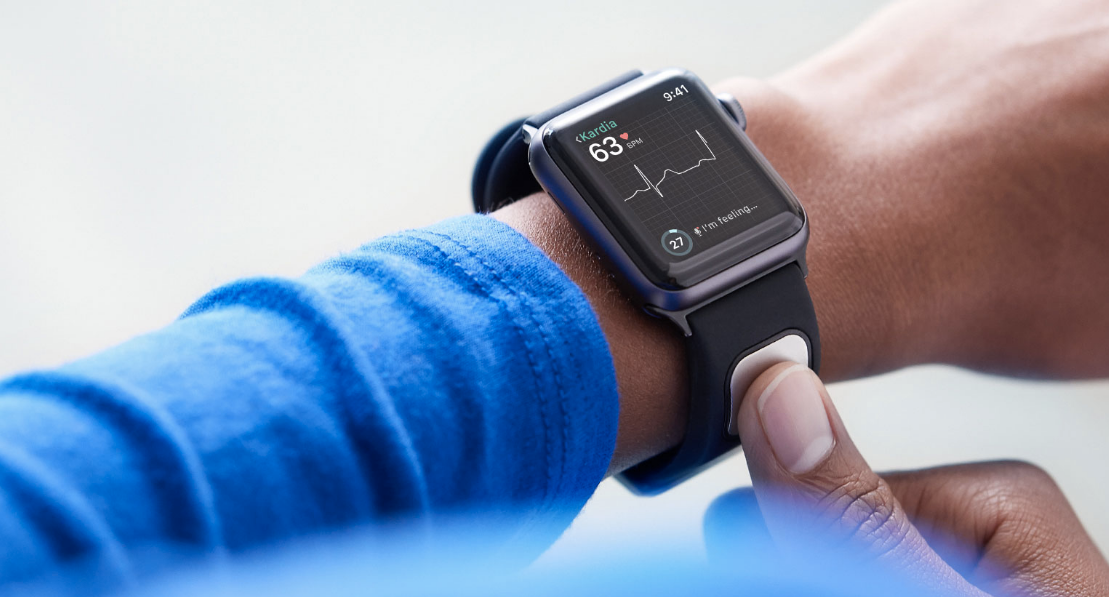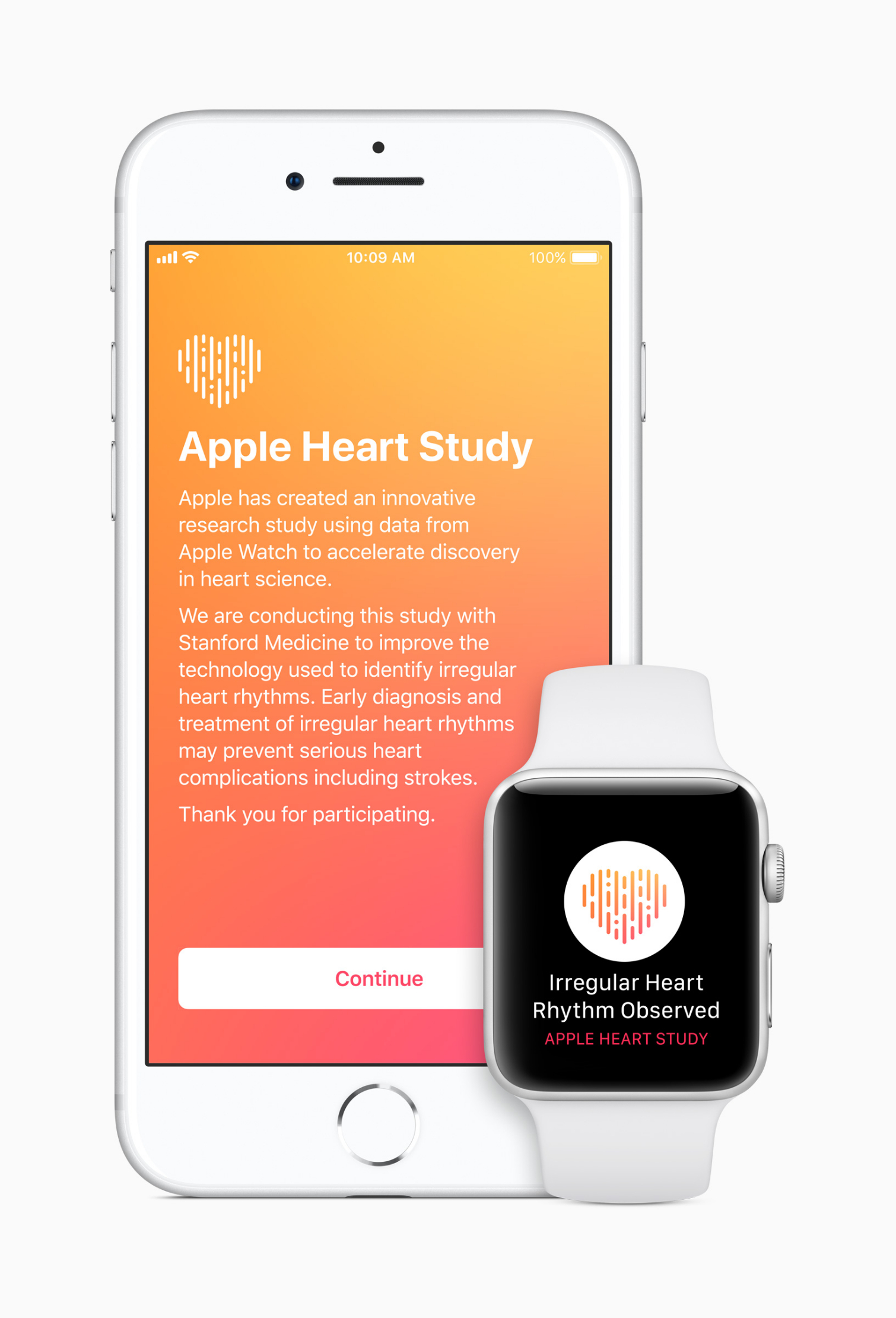The Apple Watch Moves One Step Closer to Diagnosing Heart Disease
The KardiaBand, an Apple Watch band with an EKG sensor, and an Apple-led heart study are positioning the Apple Watch as a medical device on your wrist.
The Apple Watch is already an advanced fitness tracker, but now it’s becoming a medical device. Sort of.

Image Credit: AliveCor
According to Bloomberg, the Food and Drug Administration just approved AliveCor’s $199 KardiaBand, an Apple Watch strap with a built-in electriocardiogram reader that can diagnose an abnormal heart rate. Atrial fibrillation is an early sign of heart disease but is often asymptomatic, so people don’t know anything is wrong until it might be too late. Atrial fibrillation contributes to about 130,000 deaths in the U.S. each year.
The KardiaBand’s sensor scans your thumb and delivers a medical-grade EKG in 30 seconds. The accessory pairs with AliveCor’s Kardia app to analyze heart rate data and your activity to figure out if your heart rate has spiked because you’re exercising or if you’re experiencing atrial fibrillation. If the app determines that your heart rate is abnormal, it will prompt you to take another EKG reading. You can email the results to your doctor.
In addition to the $199 band, you’ll need an Apple Watch, which starts at $329. You’ll also need to pay for AliveCor’s $99-per-year premium subscription, which offers unlimited storage for your EKG results.
The Apple Watch’s heart rate sensor already alerts you when your heart rate spikes abnormally, but it doesn’t offer EKG readings because doing so would require FDA approval. Apple CEO Tim Cook has expressed hesitation about turning the watch itself into a medical device, because the regulatory approval process would slow down the pace of hardware releases. Apple typically announces a new Apple Watch model every year.

Image Credit: Apple
Sign up to get the BEST of Tom's Guide direct to your inbox.
Get instant access to breaking news, the hottest reviews, great deals and helpful tips.
But Apple has made it possible for researchers to conduct studies using Apple Watch health data, and now the company is launching its own study in partnership with Stanford University’s School of Medicine. The Heart Study app, out today, is fairly simple: Apple Watch users over the age of 22 can install the app and then allow it to monitor their heart rate and rhythm. Anyone with an Apple Watch Series 1 or later can participate, not just people who think they might have heart disease.
Heart Study participants who experience heart rhythm abnormalities will be alerted on their Apple Watches and then given the chance to FaceTime with a doctor. They will still need electrocardiograms to diagnose atrial fibrillation. The doctor, licensed by private company American Well, might recommend that you wear an ECG patch to wear for seven days to collect deeper heart rhythm data. If so, a free patch will be mailed to you. Alternatively, you could wear AliveCor’s KardiaBand, but that is not free.
“Every week we receive incredible customer letters about how Apple Watch has affected their lives, including learning that they have AFib,” Apple Chief Operating Officer Jeff Williams said in Apple’s announcement on Thursday. “These stories inspire us and we're determined to do more to help people understand their health. Working alongside the medical community, not only can we inform people of certain health conditions, we also hope to advance discoveries in heart science.”
Only a doctor can diagnose and treat a heart condition, but the Apple Watch is arming users with the data they need to seek out a physician before it’s too late.
Caitlin is a Senior editor for Gizmodo. She has also worked on Tom's Guide, Macworld, PCWorld and the Las Vegas Review-Journal. When she's not testing out the latest devices, you can find her running around the streets of Los Angeles, putting in morning miles or searching for the best tacos.
